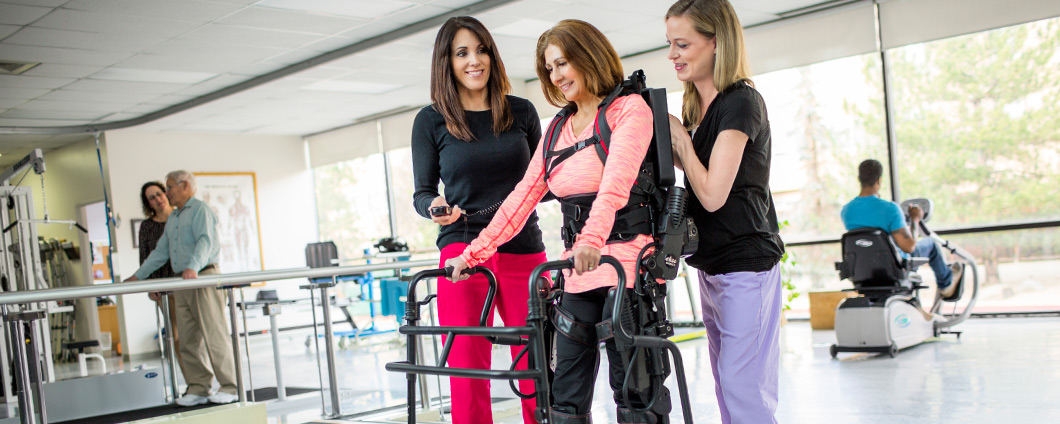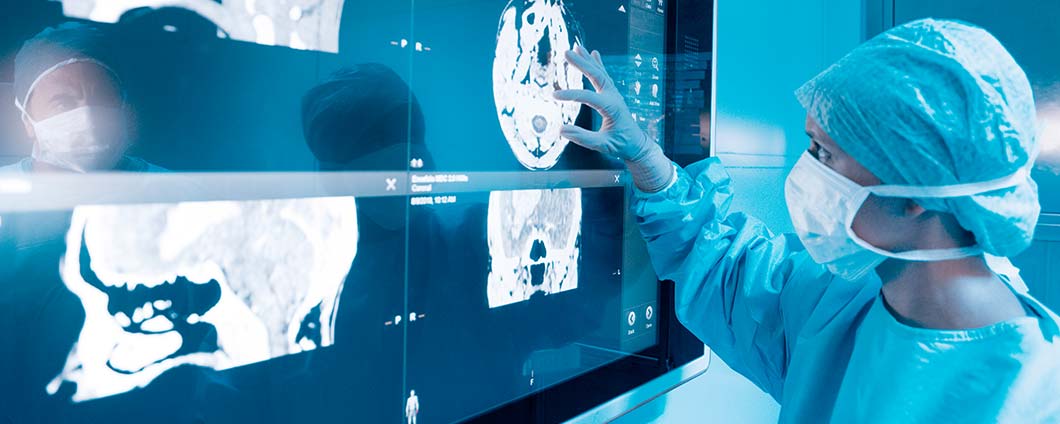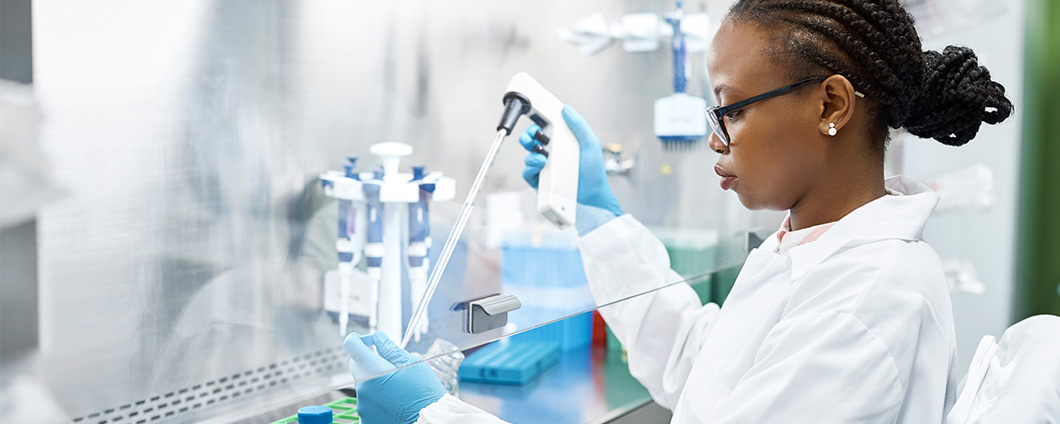Search
Results for 'pain management'
Clear-
Spine, Sports and Pain Management
How We Can Help You may benefit from treatment for neuromuscular (nerve, muscle and bone) disorders – that cause pain and impair normal functions. But, first, consult your primary care physician for a referral to Renown Health's Spine, Sport & Pain Management. Dr. Keating, Medical Director and his colleagues, Dr. Su and Dr. Storm, will customize a treatment plan that best suits your needs and lifestyle while providing the most effective care possible. For more information: Call 775-982-3608 | Fax 775-982-8001
-
When Is It Time to See a Physiatrist
Physiatry (fi-zahy-uh-tree), also referred to as physical medicine and rehabilitation, encompasses the diagnosis, prevention and treatment of disabilities or injuries related to the brain, nerves, bones and muscles. The goal of this specialty is to maximize physical functioning, greatly decrease or eliminate pain, foster independence and improve quality of life for those suffering with a disability, chronic pain and physical impairments. Who Is It for? Physiatry can help patients with functional deficits and secondary medical conditions as a result of the following: Amputation Brain Injury Osteoarthritis Spasticity and Movement Disorders Spinal Cord Injury Spine Pain Sports-Related Injuries Stroke Some of these medical conditions can often cause chronic pain or impede physical functioning, ultimately affecting a person’s overall well-being and making it difficult for them to sustain a desired quality of life.
-
Physiatry NEURO-REHABILITATION CLINIC
What is Physiatry? Physiatry (fuh·zee·a·tree) encompasses the diagnosis, prevention and treatment of all disabilities related to the brain, nerves, bones and muscles. The goal is to maximize physical functioning, significantly decrease or eliminate pain, foster independence and improve the quality of life for those with a disability, chronic pain and physical impairments.
-
Neurosurgery
Renown Neurosurgery Using a collaborative approach, our experts use leading-edge diagnostic tools to identify neurological conditions and treat them with the most effective surgical and non-surgical treatment techniques available. What is a Neurosurgeon? A neurosurgeon is a doctor that specializes in surgical treatment and management of conditions for the nervous system, including the brain, spinal cord and nerves. In addition to the nervous system, neurosurgeons can also treat conditions that impact the surrounding supporting structures, including your skull, spinal vertebrae, spinal disks, and blood vessels. If your care team determines surgery is the best plan of treatment, you will be referred to a neurosurgeon for consult. Conditions We Treat
-
Neurosciences Clinical Trials
Neurosciences Clinical Trial Opportunities
-
Neurodiagnostics
The Neurodiagnostics team at Renown Health offers a wide range of comprehensive imaging, electrical impulse detection, and other neurodiagnostic procedures to help doctors quickly and accurately diagnose neurological conditions, allowing them to create an effective treatment plan. Using neurodiagnostics, our neurologists can diagnose a variety of dysfunctions in the nervous system, such as: Autonomic disorders Brain tumors Epilepsy Head trauma Movement disorders, such as Parkinson’s disease Multiple sclerosis Neuromuscular diseases Peripheral nerve injuries Sleep and breathing disorders Spinal cord injuries Stroke Vascular disease
-
Neurovascular and Stroke Program
Stroke is the 5th leading cause of death in the U.S. and the main cause of adult disability. If you or a loved one is experiencing a stroke, you need skilled medical care immediately. The Renown Neurovascular and Stroke Program provides expert emergency stroke care and comprehensive neurovascular care and rehabilitation services. If you suspect that you, or someone around you, is having a stroke, don't hesitate and call 911 immediately.
-
Women and Stroke Surprising Signs to Know
Stroke is unfortunately common, with 1 in 5 American women experiencing it each year. When it comes to a stroke the phrase “time is brain” speaks to the urgency of getting rapid care. In fact, a woman may lose nearly 2 million neurons per minute of oxygen loss to the brain. The Renown Health Comprehensive Stroke Center experts share the importance of timely treatment and how stroke symptoms can differ in women. Women and Stroke – Surprising Symptoms Each year stroke affects more women than men. Even more concerning, women are less likely to recover from a stroke. The following non-traditional, less common, warning signs can be common in women: Hiccups with chest pain Sudden disorientation, drowsiness, confusion or a general altered mental status Nausea or vomiting A sudden headache that feels like the ‘worst headache of your life’ Unusual chest pain (especially with hiccups) Body numbness or weakness, such as an arm or leg suddenly ‘falling asleep’ Fainting or loss of consciousness Stroke Diagnosis The first step is neuroimaging by CT scan. This allows for rapid identification of any bleed, and also assists in determining candidacy for the early clot busting medication. MRI brain imaging is much higher resolution, and can better determine the core stroke size, assisting in prognosis and recovery. Since strokes have several different origins, an inpatient workup is essential to determine the underlying cause. Whether the stroke is secondary to plaque in the large vessels, clots being thrown in the setting of atrial fibrillation (an abnormal heart rhythm), or small vessel disease from years of uncontrolled vascular risk factors (high blood pressure, smoking, high cholesterol, diabetes), determining the cause is essential to implementing a management plan to reduce risk for further strokes. Quick Treatment for Stroke is Key Early recognition of stroke symptoms and seeking prompt attention is paramount. There are interventions that can be instituted to minimize the stroke and increase likelihood of recovery, but only if a patient presents to the hospital early. A clot busting medication, called tPA, can be given to patients with stroke if given within 4-5 hours from time of onset. Renown Regional Health Center is designated as a Comprehensive Stroke Center, the highest level of stroke certification available. To earn the designation of comprehensive stroke center, a hospital has to meet stringent requirements, including biannual on-site evaluations. This includes care for ischemic stroke patients (lack of blood flow), hemorrhagic stroke patients (bleeds), and determining the underlying cause to guide secondary stroke management prevention. Stroke Symptoms Remember “B.E.F.A.S.T.” to recognize the symptoms of a stroke below: B – Balance Being off balance or dizzy, is common. E – Eyes An eyesight change such as blurring or double vision may occur. F – Face droop One side of the face, or lip, droops A – Arm weakness Does one arm drift down? S – Speech Talking may slur or sound strange. T – Time Time to call 911. Call an ambulance immediately if you or anyone else, experiences any of these symptoms.







